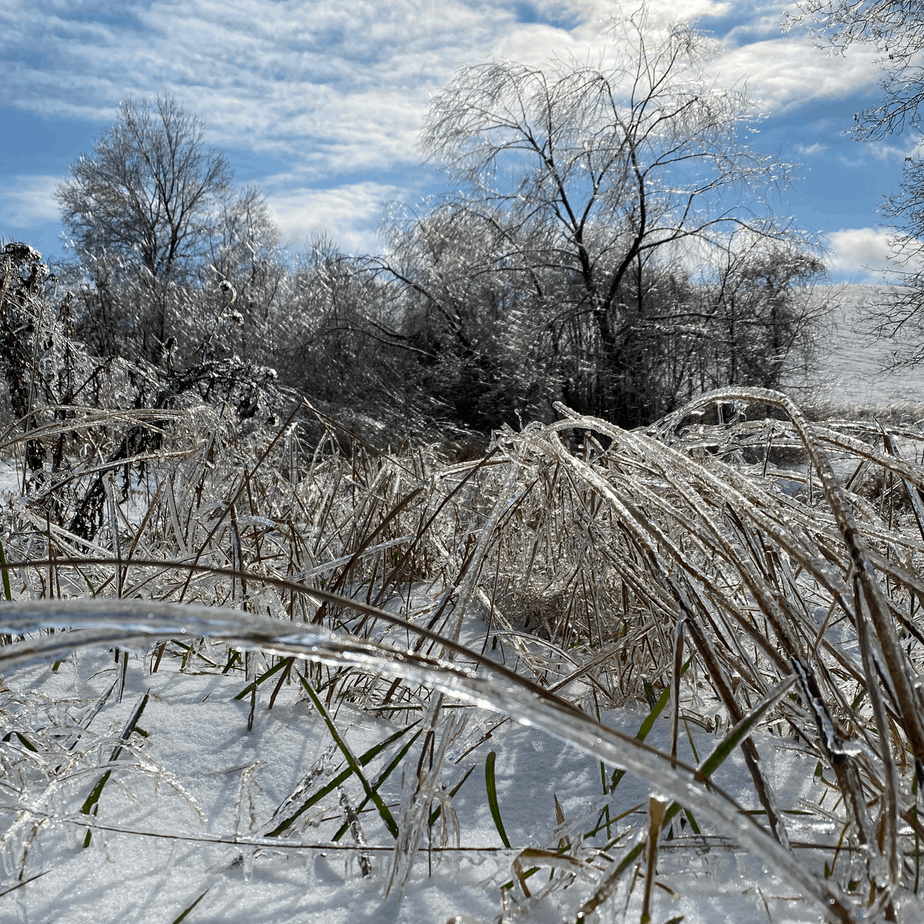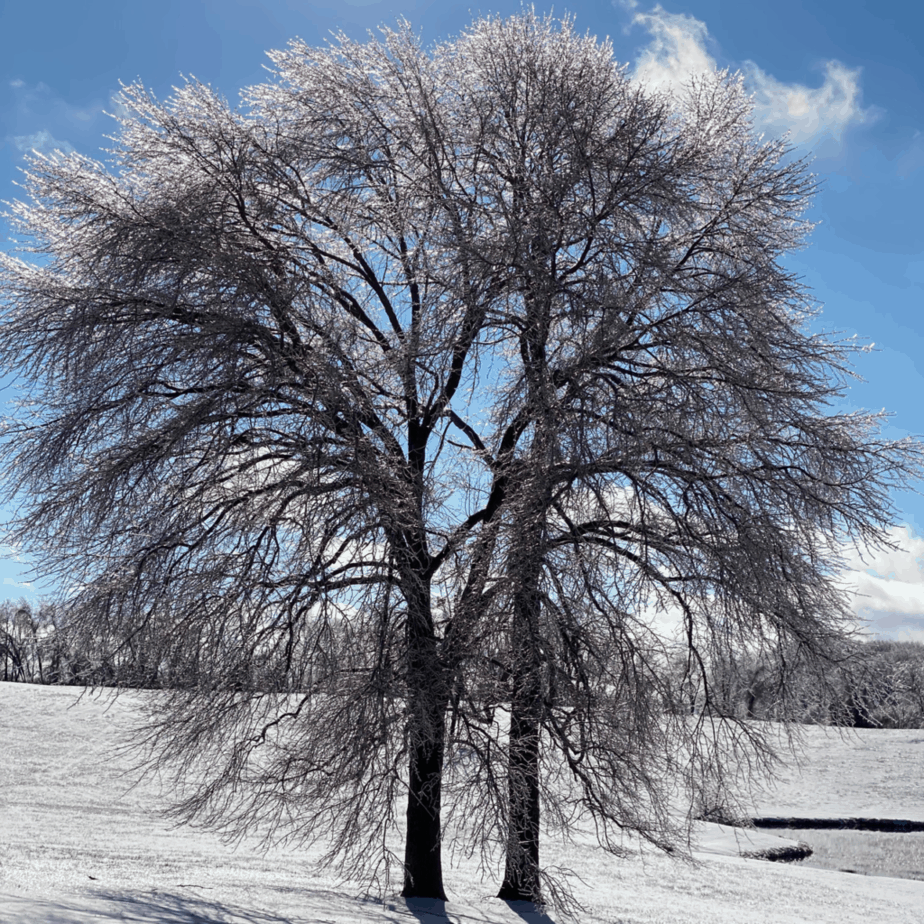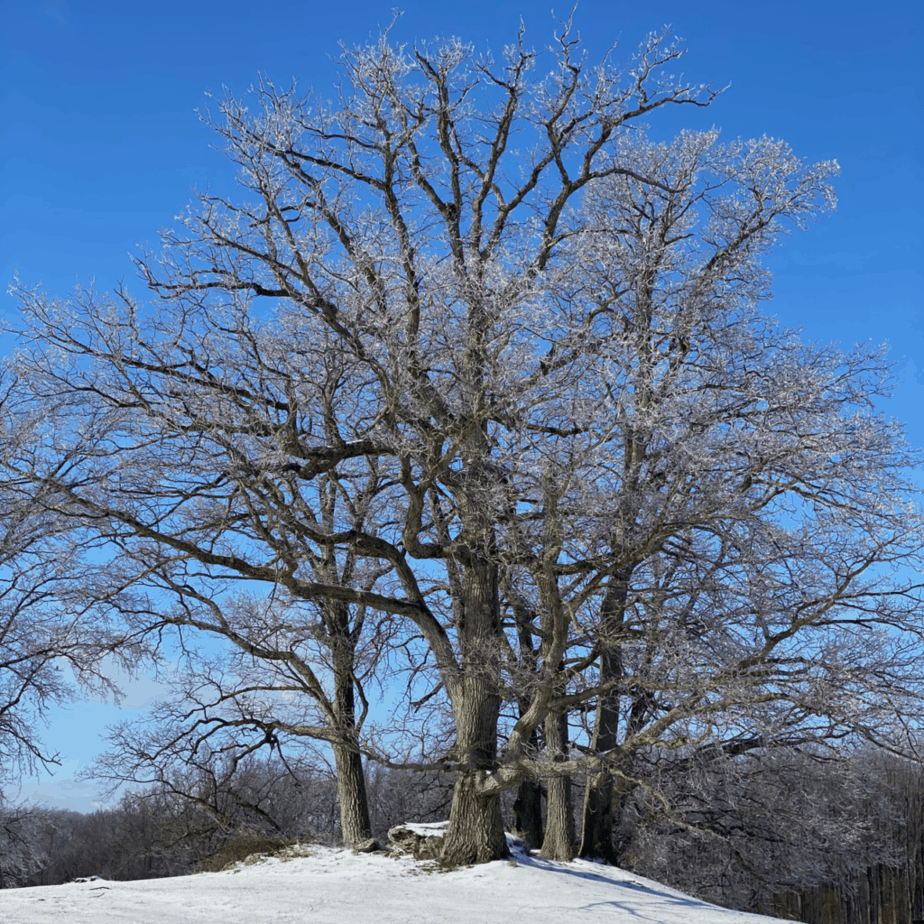Ice on tree limbs is really pretty. However, it is a double edged sword. First, it provides for some great photo opportunities. Depending on the amount of ice coverage and temperatures, it can last a few hours or several days. This contributes to the extent of the next problem. Second, it can cause obvious and hidden damage to trees. Read on to find out more.
Extent of Ice Damage on Tree Limbs
The Type of Tree Matters
If you have read my blog, you know that different woods have different strengths. Stronger woods usually sustain less damage from ice on the tree limbs that weaker woods. Interestingly, the two crepe myrtles in this photo responded differently. The one in the front looks less impacted than the one at the far end of the wall.
What to do After the Ice on the Tree Limbs Melts
After the ice melts, you want to assess the damage. Sometimes, the damage is obvious. First, broken limbs should be trimmed to prevent further damage. Second, natural pruning from the weight of the ice is unavoidable. However, if the break is large or creates a tear, it should be cleaned up to minimize further damage to the tree. Finally, and less obvious is the stretching of limbs. Tree limbs that are over stretched for a long period of time sustain irreparable damage. This can happen to any type of tree. Once tissue is stretched, it is weakened. These limbs should be monitored. Trimming maybe necessary to regain structural integrity.
The river birch in this photo are bent and stretched quite extensively. Luckily, they were just pruned. If not, the damage may have been worse. The good thing is this wood is flexible, and the bad thing is this wood is flexible. This summer we will be able to assess any long term damage.




